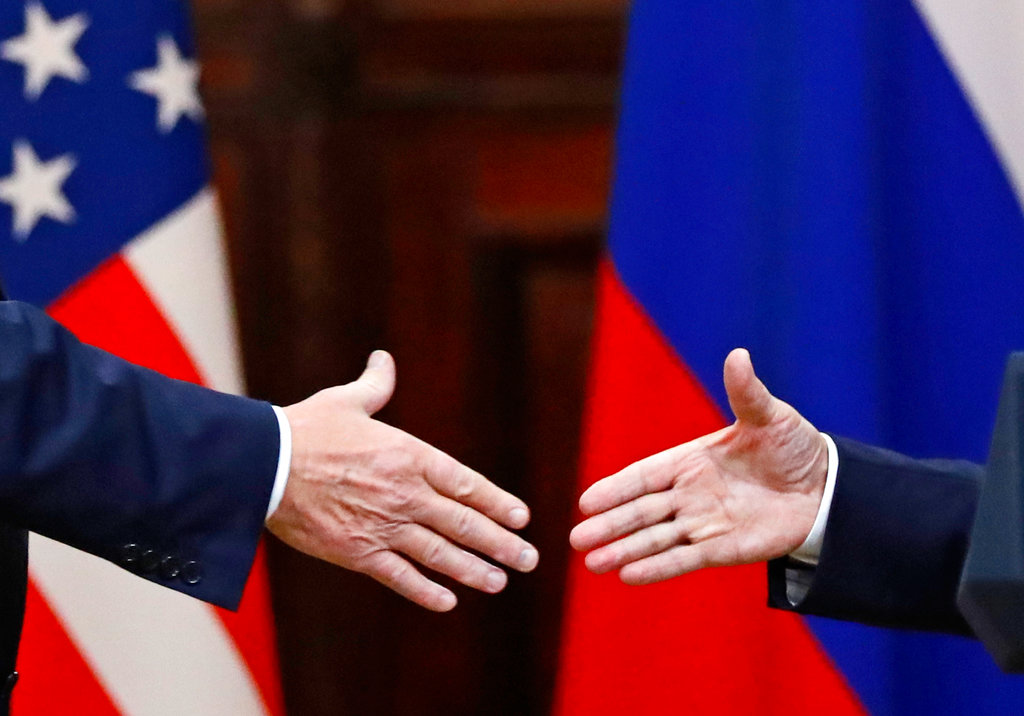By Maria Zhigadlo
In recent months, relations between Russia and the United States have shown signs of movement after a prolonged period of stagnation
In recent months, relations between Russia and the United States have shown signs of movement after a prolonged period of stagnation. While deep disagreements remain, both sides are taking steps toward dialogue. Against this backdrop, News.Az spoke with Pavel Klachkov, a Russian political analyst and Director of the Branch of the Financial University under the Government of Russia, to discuss the key outcomes of recent negotiations between Moscow and Washington.

In this interview, Klachkov shares his insights on the significance of renewed diplomatic engagement, the prospects for a high-level meeting between the leaders of the two global powers, and the broader geopolitical implications. He also assesses the role of Ukraine in the talks, the likelihood of sanctions relief, and how European allies are reacting to the shifting dynamics in global politics.

- What are the key agreements reached between Russia and the United States during the negotiations, and what steps are planned for their implementation?
I believe the main achievement of the negotiations is the very fact that Russian-American relations have emerged from stagnation. For a long time, they were in deep crisis, but now we are seeing signs of revival. The most important development is that the process of dialogue and engagement has finally been launched. According to official statements and leaks in the press, preparations are underway for a meeting between the leaders of the two global powers—Vladimir Putin and Donald Trump. This summit will determine the future trajectory of global politics. Therefore, the key agreement is the resumption of a full-fledged dialogue between Russia and the United States and the preparation of a meeting between their leaders.

- How do you think the discussion on resolving the conflict in Ukraine unfolded, and what positions did the parties take regarding a possible peace agreement?
Regarding Ukraine, I do not believe this issue was central to the negotiations. It is just one of many regional crises, alongside challenges in the Arctic, Africa, the Middle East, and Southeast Asia. Naturally, military actions, loss of life, and instability require discussion, but Moscow and Washington have accumulated a much broader agenda—from nuclear security to energy cooperation. There is likely an understanding that, sooner or later, the time for a peaceful settlement in Ukraine will come. However, Russia is not willing to concede its positions, while the Ukrainian side continues to take a destructive and confrontational approach, failing to find common ground with either the U.S. or Russia. The country is in chaos, and the key question is how to stabilize the situation. Talks between Moscow and Washington already include this aspect, but a settlement is only possible based on common sense, not political slogans.

- Will steps be taken to normalize bilateral relations, including lifting sanctions and restoring diplomatic channels?
Speaking about the prospects of Russian-American relations, we can state that the process of normalization is beginning. The first step is restoring diplomatic channels. For a long time, diplomatic missions were reduced, consulates were closed, and staff numbers decreased. Now, it is necessary to create negotiation groups and restore the number of diplomats on both sides. However, the issue of sanctions remains complex. One should not expect them to be lifted quickly, especially in terms of serious economic restrictions. Some symbolic brands, like fast-food chains, might return, but this is of little real significance. More substantial sanctions are likely to remain in place. I hope I am wrong, but at this moment, there are few grounds for optimism. The sanctions policy could last longer than many expect.
- How have European allies and Ukraine reacted to the negotiations, and can they influence the further development of events?
As for European allies and Ukraine, they find themselves in a state of complete confusion. Their strategy is collapsing before their eyes, and their response is limited to sharp statements, insults directed at Trump and Putin, and demonstrative outbursts. This only highlights their weakness—there is no real military or economic power behind them. Essentially, these are dependent states that suddenly feel abandoned and disoriented. However, in Europe, more pragmatic and conservative forces may gradually come to power. This does not mean they will become pro-Russian, but their policies will likely be more rational and balanced. Unlike the current chaotic course based on emotions, the new political landscape of Europe may become more predictable and realistic.
The prospects for the current Ukrainian leadership look extremely bleak—this is a serious challenge for them. At the same time, for us, the situation is likely to develop in a more favorable direction. Europe and Ukraine face serious upheavals—a difficult period of turbulence and trials lies ahead for them.


